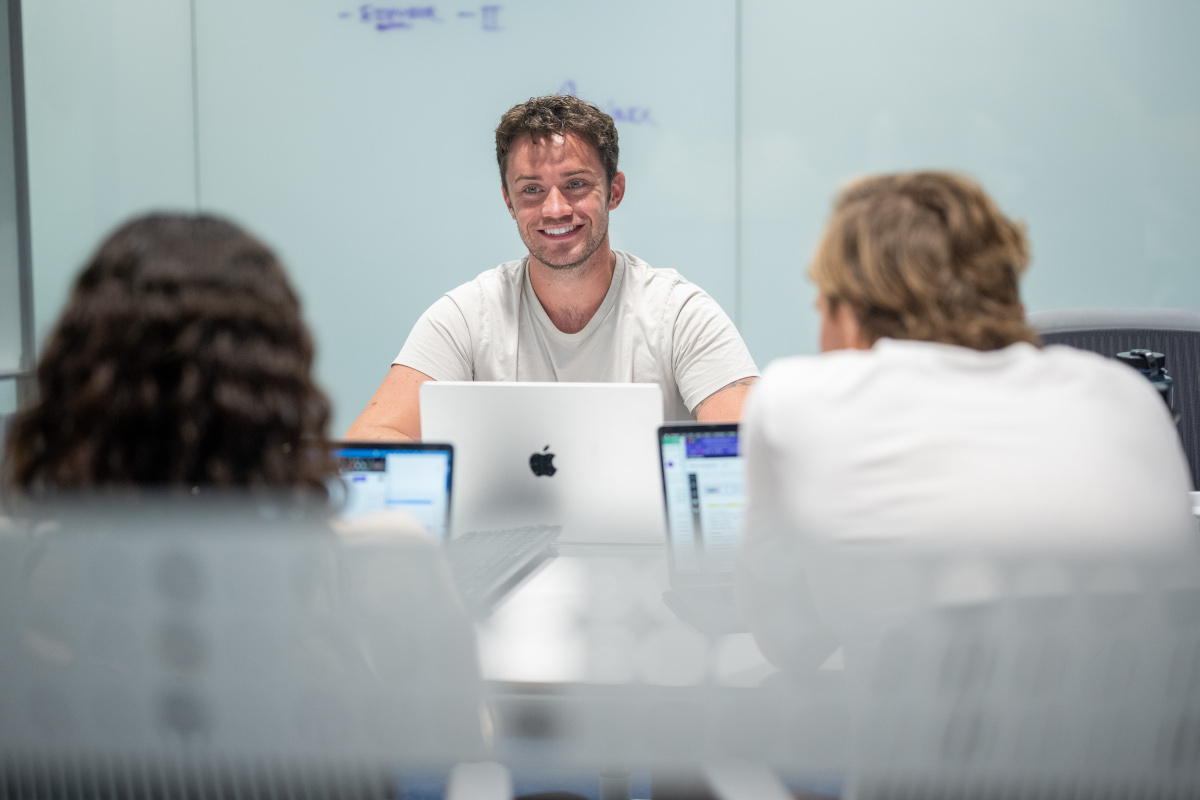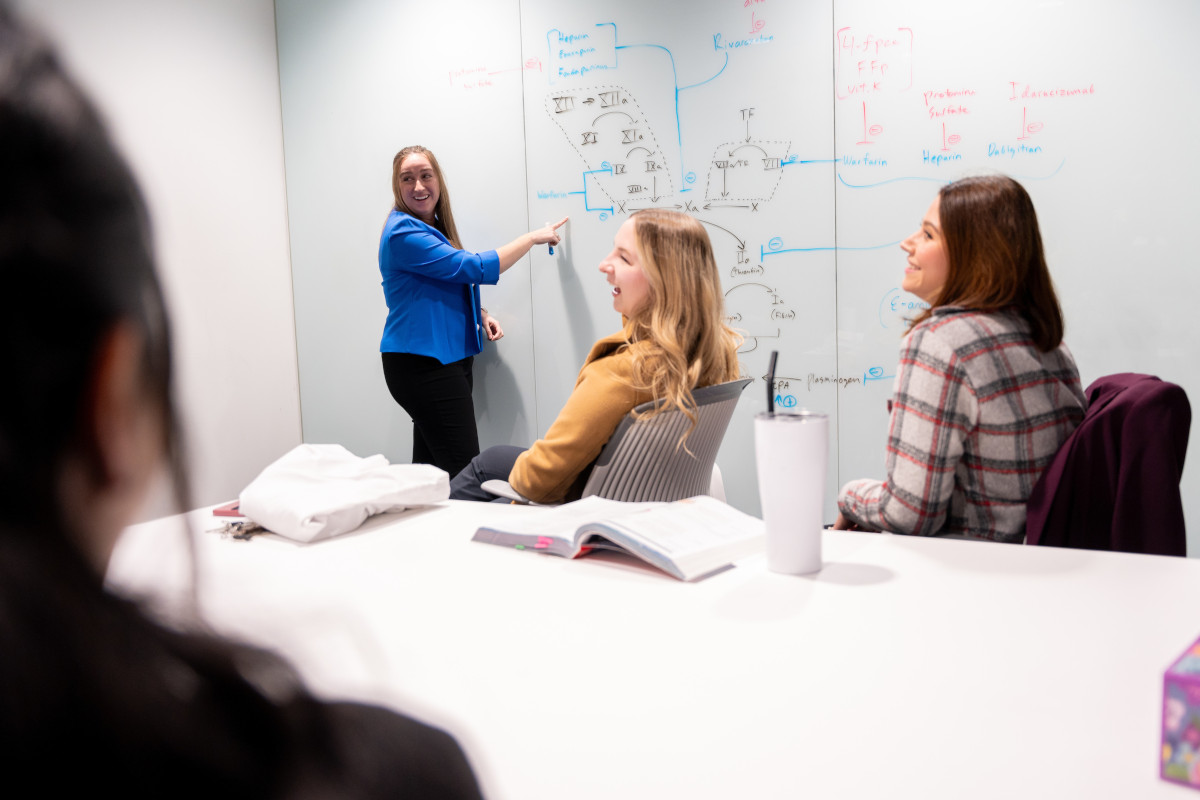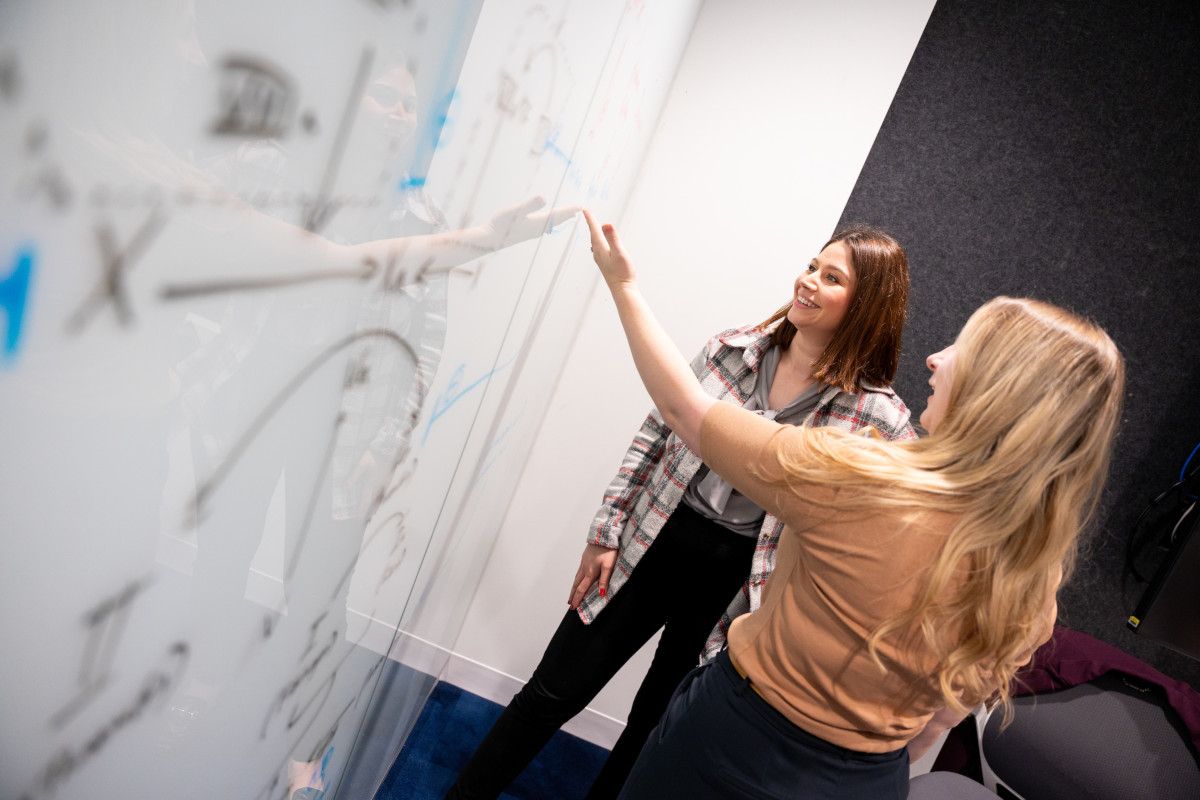Navigating the future of aging
Supporting healthier lives for an aging population
By 2030, all baby boomers will be 65 or older.
In an age when people are living longer than ever, a conundrum has arisen; people may be stretching out their golden years, but they aren’t necessarily healthier.
The field of gerontology — the study of aging — focuses on how to guide people through the aging process healthily.
How do we keep people as healthy as they can be? We’re not going to teach you how to die. We want to teach you how to live with the number of birthday candles that you have on your cake. We want you to embrace those candles and to be the best version of yourself that you can be.
— Sue Anderson, associate director of program development
The School of Health and Medical Professions (SHAMP) has developed a Master of Science in Gerontology aimed at educating healthcare professionals in the study of aging and how they can best support the rising number of elderly patients through the aging process.
“I define successful aging as quality of life,” said Sue Anderson, associate director of program development at SHAMP. “People are living longer, but they’re not living healthier. I don’t think it’s enough to increase the quantity of years you are living. We must also look at how we improve the quality of those days.”
Successful aging is “rooted in prevention”
Thomas Farrer, associate director of program development at SHAMP, said successful aging is “rooted in prevention,” and, though there are things outside medicine’s control, there are tactics people can take to age healthily.

“My mind always goes to dementia,” he said. “We know that one of the biggest predictors of dementia is lifestyle, so people should try to remain physically active. We know certain things negatively impact the brain, like smoking. We know that if someone has a diet that’s rich in antioxidant food and anti-inflammatory food, they reduce the risk of developing dementia over time.”
Farrer said that although some people are genetically destined to experience symptoms of dementia, people can often offset when it starts, even by decades.
“If I diagnose a patient with Alzheimer’s, they want to know what to do about it. That broke my heart, because these are progressive illnesses. What we should have done is intervene 25 years earlier, so they didn’t develop it at all,” Farrer said. “For me, the goal of gerontology is to prevent this from happening in the first place. I want more professionals to have that knowledge early, when they’re working with people in their 40s, 50s and 60s, before these diseases develop.”

Today, the average lifespan is approximately 77 years. Anderson explained that in the early 1900s, when the average lifespan was around 50 years, people didn’t live long enough to develop illnesses such as dementia. But now that people are living into their 70s, they need to learn to manage their health to prevent these diseases from happening.
She said that more attention needs to be paid to keeping people healthy, rather than treating diseases after diagnosis. This requires more education on how to care for the country’s aging population.
“I’ve always been an upstream thinker,” Anderson said. “How do we keep people as healthy as they can be? We’re not going to teach you how to die. We want to teach you how to live with the number of birthday candles that you have on your cake. We want you to embrace those candles and to be the best version of yourself that you can be.”

A family science
Gerontology is more than caring for the aging, it is also guiding family members through the aging process.
Anderson believes that gerontology is a family science and emphasizes the connection between aging and familial support.
“You can’t talk about gerontology without talking about family, because it is a family process,” Anderson said. “If you get to see 95 candles on your cake, you didn’t get there by yourself. Usually, it’s family watching you and growing with you. When people get older, in the best situations, families are more involved, and they want to make sure that the person is safe. But families sometimes don’t know how to do it.”
While families often strive to provide safety and care for their older loved ones, they may feel uncertain about how to navigate these responsibilities effectively. Gerontologists are the guides to getting families the help they need.
Thomas J. Farrer, PhD, ABPP
Assistant Professor, Associate Program Director
“Life is really circular,” Anderson said. “You come into the world and you’re helpless, and you need people to help you develop. All along that continuum of life, you need help. This program is to support the final arc of the circle. That when people get older, they still have the help they need to be safely independent.”
By fostering a deep understanding of the aging process, families can enhance the lives of older adults and their families throughout the aging process. The goal is not just to help people live longer, but also to live healthier lives.
“Let’s age successfully and enjoy life and have a good quality of life,” Farrer said. “That is my mission and what I hope to see with every graduate that goes through our program.”
SHAMP’s Master of Science in Gerontology is an online degree and will begin Fall 2025.
Article by Emma Zado, Idaho WWAMI.
Photos by University of Idaho Visual Productions.
Published in November 2024.











